Senior Lecturer in Sport Psychology
Faculty of Arts, Science and Technology
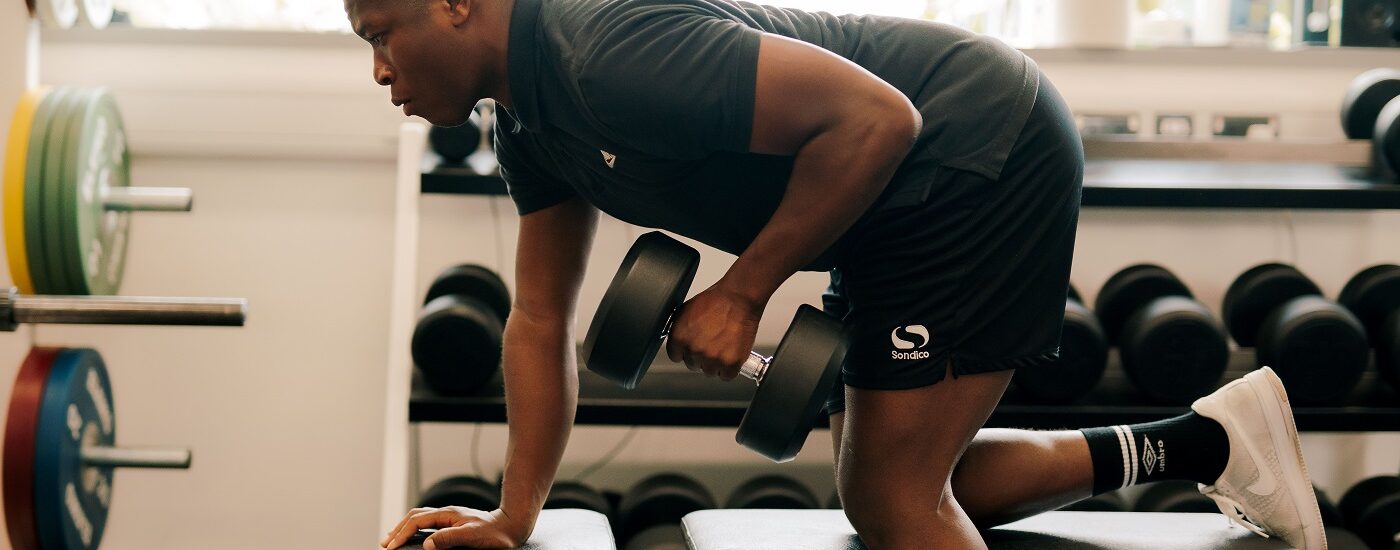
Sport and Exercise Psychology BSc (Hons)
- Home
- Courses by subject
- Sport and Exercise Psychology BSc (Hons)
Key Facts
-
UCAS Code
BSc: CC68
BSc with Foundation: CC86 -
Level
UndergraduateUG BSc (Hons)
-
Duration
Full Time: 3 years
Full Time Foundation: 4 years
Part Time: 4 years -
Starting
September
-
BBC at A Level or,
DDM at BTEC -
Full Time: £9,535
Part Time: £1,585 per 20 credit module
Integrated Foundation Year: £9,535 -
Full Time: £15,700
Integrated Foundation Year: £15,700 -
Waterside
Updated 09/04/2025
Updated 09/04/2025
Get in touch
For questions regarding study and admissions please contact us:
UK STUDENTS ENQUIRIES
study@northampton.ac.uk
0300 303 2772
INTERNATIONAL STUDENTS ENQUIRIES
The University of Northampton’s British Psychological Society (BPS) accredited Sport and Exercise Psychology degree provides a study route for careers in the field of sport and exercise psychology; for sport psychologists to improve coaching, athletic performance, and wellbeing in sport, and for exercise psychologists to improve the adoption, enjoyment, and maintenance of physical activity for health and wellbeing in general populations. Studying this BSc sport psychology degree, you will cover all the core areas of psychology required for BPS accreditation, along with modules that will develop your understanding of key psychological factors associated with enhanced performance and well-being in sports, exercise, and physical activity across the life span.
This sports psychology university course is a first step in the teaching and support of applicants who wish to embark on the journey of becoming an accredited sport and exercise psychologist. It will also serve those who wish to improve their knowledge and skills of sports performance and/or lifestyle health behaviour change, whether this be as a personal trainer, coach, or health and fitness advocate.
Professional Accreditation: British Psychological Society (BPS)
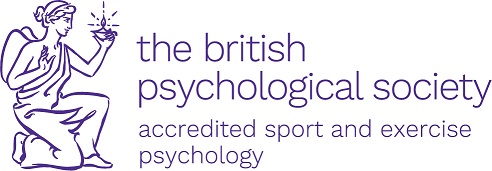
Highlights
- British Psychological Society (BPS) accreditation
- Our purpose-built laboratories and research facilities
- Northampton Energy Elite Athlete Scholarship
- Fantastic links/partnerships with top sports teams – Northampton Saints, Northampton Town FC, and Northants County Cricket Club
- Opportunity for you to gain additional coaching qualifications during the Sport and Exercise Psychology course
- Opportunity to gain work experience* to develop professional behaviour and competencies in Sport and Exercise settings (*optional module)
- Guaranteed paid internship with the Northampton Employment Promise.
- HP laptop and software included with this course for eligible students* (*see Eligibility criteria and Terms and Conditions)
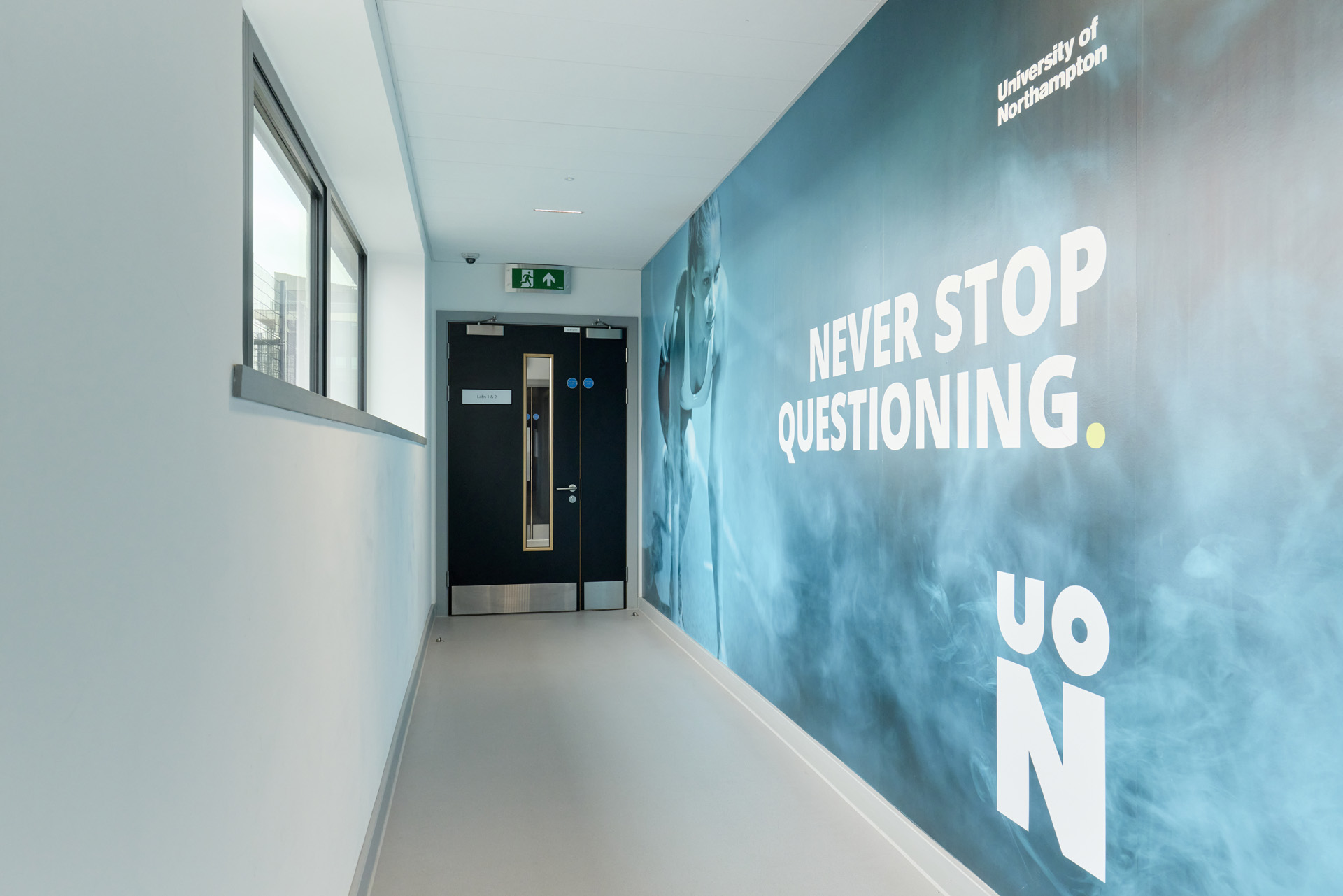
The corridor of the Sports Lab. This is where students can do some of their study.

Students use the Sports Dome facility as part of their practical, hands-on learning.

The corridor of the Sports Lab. This is where students can do some of their study.

Students use the Sports Dome facility as part of their practical, hands-on learning.

The corridor of the Sports Lab. This is where students can do some of their study.

Students use the Sports Dome facility as part of their practical, hands-on learning.

The corridor of the Sports Lab. This is where students can do some of their study.

Students use the Sports Dome facility as part of their practical, hands-on learning.
Entry Requirements
A typical offer for this Sport and Exercise Psychology degree would be:
- BBC at A Level or,
- DDM at BTEC/Cambridge Technical or,
- M at T Level
We welcome applications from students with a mix of A levels and BTEC/Cambridge Technical qualifications.
In addition, you will need to have studied PE Sport, Science or Psychology at A Level or BTEC level 3 diploma. You will also be expected to have achieved GCSE Mathematics at grade C/4 or above, or equivalent approved qualifications.
For more information on how to make an application for the Sport & Exercise Psychology degree, please visit our How to Apply page.
If you are an International student and would like information on making an application, please see our How to Apply page.
-
Admission to this foundation sports psychology course is normally:
- DEE at A Level or,
- MPP at BTEC/Cambridge Technical or,
- Pass (D or E) at T Level
We welcome applications from students with a mix of A levels and BTEC/Cambridge Technical qualifications.
However, we would also like to hear from you if you have professional or industry experience instead, a range of other qualifications or self-developed subject knowledge that relates to the course that you wish to study.
-
All International and EU students applying for a course with us must meet the following minimum English language requirements:
- IELTS 6.0 (or equivalent) with a minimum of 5.5 in all bands
for study at undergraduate level.
For information regarding English language requirements at the University, please see our IELTS page.
- IELTS 6.0 (or equivalent) with a minimum of 5.5 in all bands
Upcoming Open Days
Open Days give you the best experience and insight to courses, people and facilities that interest you. Make your choice easier and come meet us.
Course Content
-
From becoming more active to thriving in the world of elite sport: It’s all in the mind.
Understanding factors affecting the thoughts, feelings, and behaviours associated with peak sport performance and optimal functioning in exercise and physical activity has always been important and is becoming increasingly more so in today’s world. Whether you have aspirations to work with top sports performers, or to focus on encouraging more people to become more active, when you study the Psychology of Sport and Exercise degree at the University of Northampton, you will embark on a journey that will equip you with the knowledge and skills to be able to work critically and effectively within these realms.
In year (stage) 1 of this sport psychology course, you will begin to learn about what it’s like to work as a psychologist, as well as developing a sound knowledge of specific sport and exercise psychology-related factors. This will include key behavioural theories, and factors affecting motivation and performance. You will also learn how to be successful at university.
In year (stage) 2 of our Sport and Exercise Psychology degree, your knowledge of biological and cognitive psychology will become part of the focus, along with developing an understanding of how exercise and sport can affect mental health and wellbeing.
At this point, you will begin to develop your research knowledge and skills. The focus of this year is to encourage you to become more critical in your thinking, and to choose an independent research topic, which will become your dissertation project.
In year (stage) 3 of the Sport and Exercise Psychology BSc course, you will go on to develop your dissertation project, bringing your research ideas to fruition. Further sport and exercise-related modules will serve to enhance your abilities to apply your acquired learning to specific, real-world sport and exercise settings.
Modules will be delivered as a mixture of online and face-to-face, blended learning, utilising our fantastic sports facilities, labs, and the variety of classroom-based venues on the campus. As a semesterised programme, each module will comprise four learning contact hours per week, usually as a 2-hour face-to-face, 1-hour online, 1-asynchronous teaching format. All modules are worth 20-credits and you will accrue a total of 360 credits by your final year in order to achieve an honours degree in BSc sport and exercise psychology.
Accreditation
To receive a British Psychological Society (BPS) accredited degree, students must complete compulsory modules identified, and obtain a minimum of a 2:2 degree to receive accreditation. The BPS requires students to do an empirical research project for their dissertation.
Sport & Exercise Optional Placement Year
The Sport and Exercise Psychology degree offers the opportunity to gain work experience* to develop professional behaviour and competencies in Sport and Exercise settings. Students explore future career opportunities within the sport and exercise discipline and learn about the application of Sport and Exercise Psychology in different settings such as sport clubs, governing bodies, NHS, industry, media or an research laboratories.
*NB: This is an optional module and students choosing this module must source their own placements.
Please note the modules shown here relate to the academic year 24/25. The modules relating to the academic year 25/26 will be available from June 2025.
-
-
Introduction to Psychology (20 Credits)
Module code: PSY1003Status: CompulsoryThe purpose of this module is to provide students with a broad understanding of psychology by introducing four core areas (social, developmental, cognitive and biological psychology). Students will develop critical thinking and evaluative skills of psychological material by focusing on theory, empirical research and real-life examples.
-
Becoming a Psychologist (20 Credits)
Module code: PSY1006Status: CompulsoryThe purpose of this module is to provide a fundamental introduction to research design, analysis and interpretation in psychology. Students need to understand common methods of investigation, in order to appreciate the source and context of theories and research findings encountered in specific subject areas studied in other psychology modules.
-
Introduction to Sport and Exercise Psychology (20 Credits)
Module code: SPO1024Status: CompulsorySport and exercise psychology is an exciting discipline area providing the opportunity to explore the psychological influences on human behaviour. The module offers an introduction to key psychological theories and concepts relevant to sport, exercise, physical activity and coaching contexts.
-
How to be Successful at University (20 Credits)
Module code: SPO1039Status: CompulsoryThe purpose of this module is to give students the essential academic and employability skills in order to improve their capabilities and excel at university, and then onto their chosen career.
-
Doing Sport & Exercise Psychology in the Digital Age (20 Credits)
Module code: SPO1051Status: CompulsoryThis module provides an introduction to how psychological theory and research can be applied to enhance health, wellbeing, and performance in sport and exercise settings. A significant emphasis will be placed on how practitioners intervene with athletes and `at-risk? populations through the use of digital technologies alongside more traditional face-to-face methods.
-
Introduction to Motor Learning and Skill Acquisition (20 Credits)
Module code: SPO1057Status: CompulsoryThe purpose of the module is to provide students with an understanding of the core principles related to motor learning and skill acquisition in sport and exercise settings, developing knowledge from both an athlete and coach perspective, enabling them to apply theortetical-based information into practical environments to enhance optimal performance.
-
Introduction to Psychology (20 Credits)
-
-
Biological and Cognitive Psychology: Mechanisms of the Mind (20 Credits)
Module code: PSY2029Status: CompulsoryThe purpose of this module is to build on the introduction to biological and cognitive approaches in psychology provided in Introduction to Psychology (PSY1003). It introduces new and more complex material with a view to developing students' knowledge, understanding and critical appreciation of the theories and research applied in these approaches
-
Development and Society (20 Credits)
Module code: PSY2030Status: CompulsoryThe purpose of this module is to build on the Social and Developmental Psychology material introduced in the Level 4 module PSY1003 - Introduction to Psychology. This module covers contemporary and critical perspectives related to development across the lifespan within complex social worlds and will be of interest to students wishing to deepen their knowledge of theories, research and methods in Social and Developmental Psychology.
-
Personality & the Fundamentals of Psychology (20 Credits)
Module code: PSY2031Status: CompulsoryThe purpose of this module is to build upon material presented at Level 4 by tracing the historical development of Psychology as an academic discipline and exploring key theories and research in personality and individual differences. Special consideration will be given to conceptual issues that continue to generate debate.
-
Sport Research Methods (20 Credits)
Module code: SPO2018Status: CompulsoryThe purpose of this module is to develop knowledge and understanding of a variety of research designs, methods and research skills within a subject-based context. It equips the student with a framework in which to conceptualise quantitative and qualitative traditions and applications. The emphasis will be upon understanding and experiencing the research process and developing critical skills necessary to collect, analyse and present data.
-
Positive Psychology Coaching (20 Credits)
Module code: SPO2036Status: DesignateThe purpose of this module is to develop students knowledge and understanding of how exciting concepts in positive psychology (e.g. character strengths, flow, positive relationships) can be applied to sport, exercise, coaching and physical education contexts to influence key outcomes (e.g. performance, wellbeing).
-
Psychology of Sport Performance (20 Credits)
Module code: SPO2057Status: DesignateThe purpose of this module is to develop students? knowledge of theory and research explaining performance-related emotions and psychological constructs important to the understanding of peak performance in sport. Further, this module aims to provide students with an awareness of key psychological skills utilised to inform applied practice with athletes.
-
Mental Health and Wellbeing Through Exercise and Sport (20 Credits)
Module code: SPO2058Status: CompulsoryThe aim is to provide students with an understanding of the contribution of psychology to the academic study of sport and exercise and provide a basis for subsequent work at level 6.
-
Biological and Cognitive Psychology: Mechanisms of the Mind (20 Credits)
-
-
Applying Positive Psychology (20 Credits)
Module code: PSY3055Status: DesignateThe purpose of this module is to build on, and extend, the knowledge acquired by students at levels four and five. It will examine, critically, the impact of positive psychological processes in families, organizations and communities and evaluate how these may help or hinder the development of individual and collective strengths.
-
Applied Sport Psychology (20 Credits)
Module code: SPO3007Status: CompulsoryThe purpose of this module is to build on knowledge and understanding of sport psychology from previous modules at levels four and five. There will be a focus on the role of the sport psychologist and an application of psychological skills theory in relation to enhancing sport performance and well-being.
-
Psychology of Exercise and Health (20 Credits)
Module code: SPO3009Status: CompulsoryThe purpose of this module is to build upon and further develop knowledge of previous modules (SPO1024, SPO2058) concerning the role of exercise in the development and maintenance of physical and mental health. With growing evidence that exercise participation can have psychological benefits on an individual's health and general wellbeing, the opportunities for careers in health promotion and exercise settings are greater than ever. This module will enable students to develop their understanding of the practical application of psychological theory for physical activity promotion in general and specific populations. It will also enable students to consider a variety of strategies and intervention designs appropriate to specific, targetted groups for the improvement of physical activity levels in relation to good health across the lifespan.
-
Creating Performance Coaching Environments (20 Credits)
Module code: SPO3044Status: DesignateThe purpose of this module is to develop a critical understanding of the role of the coach and the knowledge needed in the design and maintenance of optimal performance coaching environments, and the effective working practices of sport coaches in performance settings. Special emphasis will be placed on analysing, and challenging, contemporary research exploring the efficacy of coaches working practices in the context of developing talent across a range of performance sport settings.
-
Team and Group Dynamics in Sport (20 Credits)
Module code: SPO3062Status: CompulsoryThis module provides a critical examination of the factors contributing to group functioning and performance. Students will build on prior knowledge of key concepts: group formation and organisation, team roles and leadership, team environments, team cohesion and team confidence. The module draws from contemporary theory and research and examines the effectiveness of interventions designed to enhance group functioning in sport settings.
-
Sport and Exercise Psychology Dissertation (40 Credits)
Module code: SPO4012Status: CompulsoryThe dissertation further develops students' knowledge of research methodology acquired at level 5. It aims to foster the methodological expertise and skills in the planning, conducting and write-up of an empirical sport and exercise psychology research project. It develops the students abililty to work independently and reflectively in the process.
-
Applying Positive Psychology (20 Credits)
-
-
This Sport and Exercise psychology degree programme is accredited by the British Psychological Society (BPS) and is the first step towards becoming a Chartered Psychologist.
This means that upon completion of your sports psychology degree (with an overall classification of a 2:2 or above), you are eligible for Graduate Basis for Chartered Membership (GBC) to the BPS. Acquiring your GBC has a host of benefits for a future career in Psychology. The accredited Psychology degrees at UON mean that you could move into Postgraduate Study in a number of areas in Psychology and beyond, without needing to do a further Psychology Conversion course to obtain GBC status.
Graduate Basis for Chartered (GBC) Membership is considered as the starting point to your career in psychology. Obtaining GBC encompasses many benefits, including access to journals, conferences, and events. You will have the opportunity to enhance your employability through volunteering opportunities and research placements, as well as through the courses focus on analysing human behaviour from many psychological perspectives.
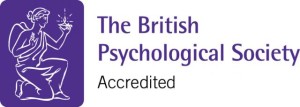
-
At the University of Northampton, everything we do, from funded trips to paid internships, is to give you everything you need to make a difference when you leave.
If you join this full time Sport and Exercise Psychology degree at the University of Northampton, you will receive a laptop when your course begins*. The laptops are built to a bespoke custom specification ideal for use in the seminar room, collaborative group work or studying at home.
Whatever your ambitions, we’re here to help you to achieve them. We’ll support you to identify the skills you’re learning during your course, find your strengths and secure practical experience so that when it comes to applying for jobs or further study you’ll feel confident in standing out from the crowd. We’ve created the Northampton Employment Promise because we are so confident that if you focus on your studies and complete one of our awards you’ll be highly employable by the time you graduate. Putting you in a great position to secure employment or continue your studies.
To check out the full list of perks, visit our Student Perks page or dedicated International Perks page.
*UK fee payers only (see Terms and Conditions for further details).
-
The Integrated Foundation Year (IFY) offers a new and exciting route into studying for this Sport and Exercise Psychology degree, attracting ambitious and driven students who are willing to learn and advance.
If you have non-standard qualifications or do not quite meet the admissions requirements we can offer you a fantastic opportunity to study a four year programme which includes an Integrated Foundation Year. The Integrated Foundation Year will help you develop the theoretical/practical and academic skills you need, in order to successfully progress to the full award.
Our four-year sports & exercise psychology course will enable you to successfully follow the degree pathway of your choice while gaining essential study skills. The foundation year of your chosen degree will be studied on a full-time basis and is aimed at supporting the transition to higher education. Years two, three and four are then studied as a standard degree programme.
-
How will I be taught on Sport and Exercise Psychology BSc?
This Sports and Exercise Psychology course is delivered through active blended learning, a hallmark of teaching at UON. This means students will be encouraged to take a very active part in their own learning rather than sit for long hours in tiered lecture theatres. Our sport psychology modules cover a wide range of fascinating topics in psychology, sport, and exercise. Many of our teaching staff are active researchers in their specialist areas, which means module content is always current. At Waterside, we aim to provide an environment that maximises your engagement and enjoyment of learning.
How to become a Sport and Exercise Psychologist?
How will I be assessed?
You will be assessed through varied range of assessments including essays, exams, presentations, and practicals.
Worried about student finance?
Get all the info you need ahead of time, before you can apply for funding in Spring on our fees and funding pages.
Fees and Funding
2025/26 Tuition Fees
Fees quoted relate to study in the Academic Year 2025/26 only and may be subject to inflationary increases in future years.
- UK Full Time: £9,535
- UK Part Time: £1,585 per 20 credit module
- UK Integrated Foundation Year: £9,535 for the foundation year; thereafter standard fees apply
- International Full Time: £15,700
- International Integrated Foundation Year: £15,700 for the foundation year; thereafter standard fees apply
Fees quoted relate to study in the Academic Year 2025/26 only and may be subject to inflationary increases in future years. UON will adjust UK fees annually in line with Government Policy.
-
Additional costs will be incurred if you decide to participate in optional field trips/visits as part of your Sports psychology uni course. The exact cost will depend upon the location chosen for the trip.
You will need to wear suitable sports kit for practical sessions as part of the course. We can purchase Sport and Exercise kit (polo shirts and hoodies) but these are not compulsory. The exact cost of kit will be provided at the start of the course.
Costs associated with producing a poster for the final year conference.
-
For information on the scholarships available to you, please see our scholarships page.
For more information about possible funding options, please visit our Fees and Funding pages.
-
Fees quoted relate to study in the Academic Year 24/25 only and may be subject to inflationary increases in future years.
- UK – Full Time: £9,250
- UK – Part Time: £1,540 per 20 credit module
- UK – Integrated Foundation Year: £9,250
- International – Full Time: £15,200
- International – Integrated Foundation Year: £15,200
Staff

Senior Lecturer in Exercise and Health Psychology
Faculty of Arts, Science and Technology
Robert Lyon

Senior Lecturer in Exercise and Health Psychology
Faculty of Arts, Science and Technology
Robert Lyon

Senior Lecturer in Exercise and Health Psychology
Faculty of Arts, Science and Technology
Robert Lyon

Facilities and Special Features
Sports Zone at Waterside is home to a multi-use sports dome suitable for a variety of sports, including football, badminton and netball. The facilities include two sports performance labs, a pair of teaching rooms and changing rooms. In addition, there also are three outdoor multi-use games areas and floodlit full-size all-weather sports pitch. The sports dome is used for teaching, research and recreational activities.
Our purpose-built laboratories and research facilities enable you to undertake performance analysis within a supportive environment.
You will learn about and experience theoretical and practical applications of sport and exercise psychology. In particular, you will use state-of-the-art eye-tracking equipment in learning about decision making in sport performance and officiating.
You are encouraged throughout your course to become members of the British Association of Sport and Exercise Sciences (BASES). There is also the opportunity for you to gain additional coaching qualifications during the degree in sport and exercise psychology.
Related Courses
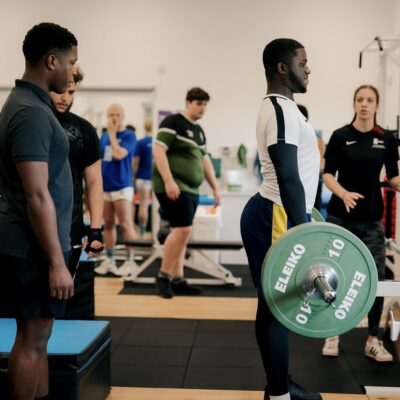
Sport Coaching BSc (Hons)
The Sport Coaching degree will develop your expertise in sport coaching, to understand participants and their...
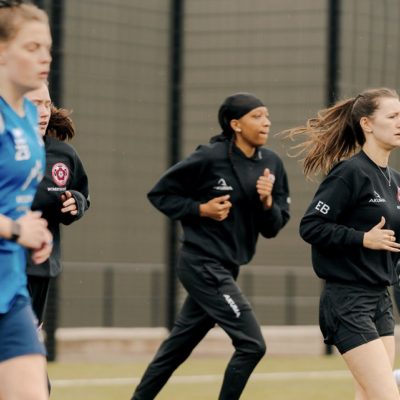
Sport and Exercise Science BSc (Hons)
Our course is practical-based, stimulating, well-structured and research-informed, covering a range of topic areas including biomechanics,...
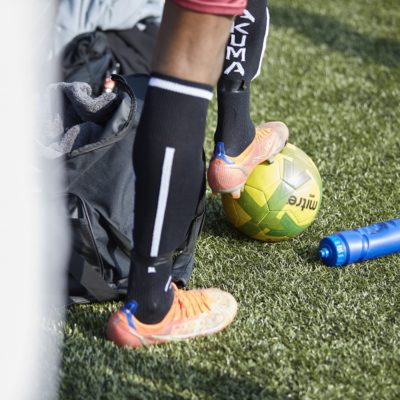
Physical Education and Sport BA (Hons)
This BA (Hons) degree explores the ways that sport, physical education and physical activity is delivered...

